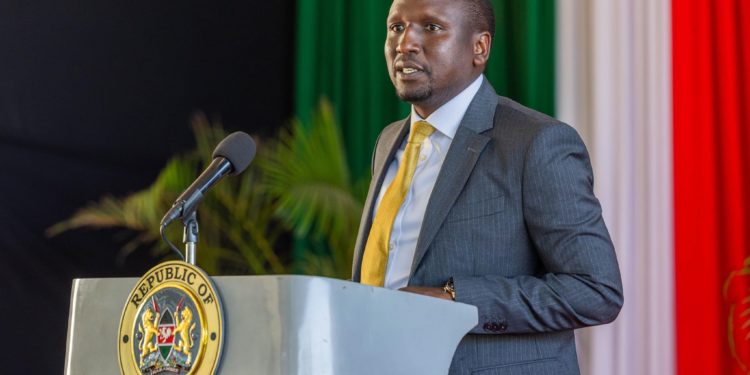Majority Leader Aaron Cheruiyot has revealed he had considered resigning during the recent political turmoil in Kenya, sparked by youth protests against the Finance Bill 2024.
The demonstrations, which forced President William Ruto to withdraw the controversial bill, have plunged the nation into a period of introspection and calls for political accountability.
Speaking on the floor of the Senate, Cheruiyot offered a stark assessment of the current political climate, acknowledging the deep-seated frustrations that led to widespread protests.
“I have to be sincere Mr. Speaker that there were days in the night that I contemplated even quitting and said perhaps others can do it,” he admitted.
The Majority Leader’s speech came in the wake of demonstrations that saw young Kenyans take to the streets, demanding the withdrawal of the Finance Bill 2024 and calling for the removal of President Ruto and his cabinet and the recall of Members of Parliament among other demands. The protests, which turned violent in some areas, have forced a reckoning within the political establishment.
Cheruiyot struck a contrite tone, offering an “unreserved apology” to the nation for the current state of affairs. “We are deeply embarrassed that it has taken young children to point to us that you are naked as our leaders,” he said, acknowledging the failure of the political class to address the concerns of ordinary citizens.
The Senate, responding to the crisis, has put forward a series of recommendations aimed at addressing the underlying issues that led to the protests. These include calls for the National Assembly to swiftly consider the presidential memorandum on the Finance Bill, implementation of austerity measures across all government departments, and a renewed focus on anti-corruption efforts.
Notably, the Senate has also called for the release of all individuals arrested for planning and participating in peaceful demonstrations related to the Finance Bill. This move signals a potential shift in the government’s approach to handling dissent and public protests.
The crisis has highlighted the deep economic challenges facing Kenya, with many citizens struggling under the weight of rising living costs and perceived government mismanagement. Cheruiyot’s admission that “ordinary solutions that we have proposed in the past cannot work this time” underscores the need for innovative approaches to governance and economic policy.


















